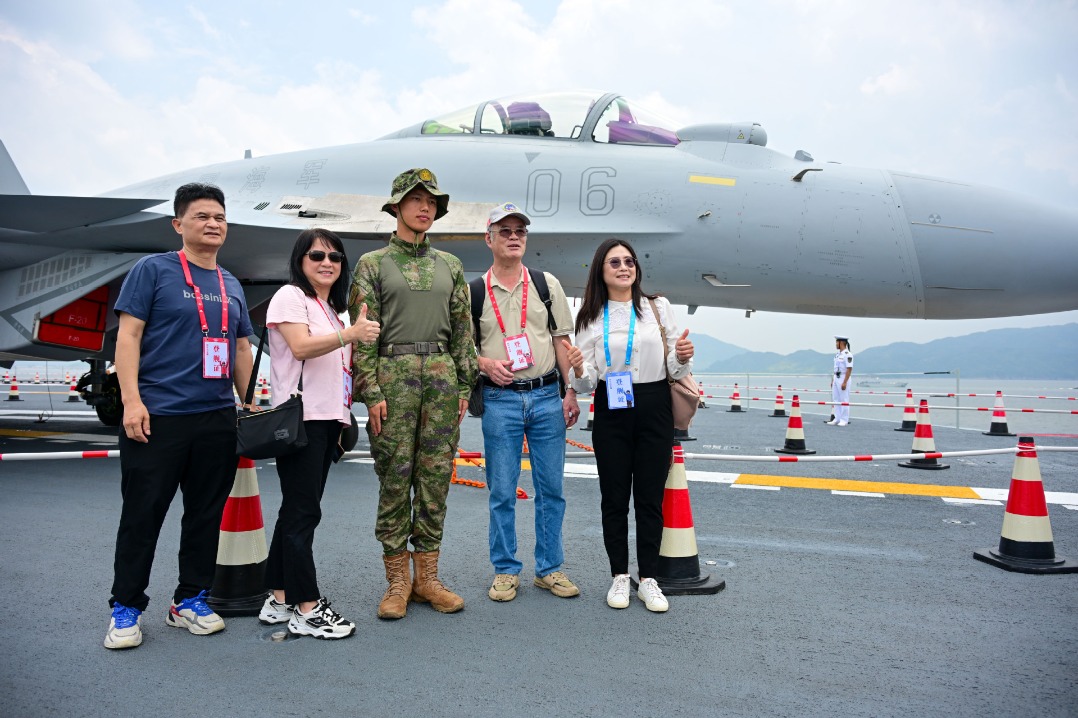US intervention in HK affairs uncalled for


On Oct 15, the US House of Representatives passed the “Hong Kong Human Rights and Democracy Act”. A similar draft text was voted on Tuesday in the US Senate. And should the two chambers of Congress approve their respective versions, a unified edition will be sent to the White House for signature.
The purpose of such lawmaking, US congressmen have explained, is to protect human rights and promote democracy in Hong Kong.
To some extent, the idea of advancing human rights and democracy are similar roots in China and the United States.
In the British colony of North America, the suppressed people strived to promote equality and democracy, and eventually overthrew British colonial rule.
China, too, was partially colonized after the First Opium War (1840-42), and Britain forcibly turned Hong Kong into a “colony”.
Both China and the US have sought independence. The US succeeded in its pursuit in 1776 and Hong Kong returned to China in 1997.
As such, China and the US share the common ground of ridding themselves of colonial rule and advancing their independence, so as to protect human rights and democracy.
However, after Caucasians landed in North America, they killed millions, if not tens of millions, of Native Americans. Although they professed a notion of human equality, they conducted slave trade for four centuries and prolonged racial segregation openly and “legitimately” till the 1960s. Were it not for individuals such as Dr Martin Luther King, Jr. and Rosa Parks, contemporary US might still be struggling with blatant racial discrimination.
The US may have made certain headway in human rights at home. But it has taken reckless adventures abroad from time to time, disregarding other people’s lives and rights. The US military sprayed chemicals on people during the Vietnam War. It launched a “preemptive” strike on Iraq to subvert the Iraqi leadership; as a result, some 300,000 Iraqi lives are unaccounted for. By any measure, these are unacceptable humanitarian disruptions.
That said, these developments don’t erase the progress of US human rights. However, the US Congressmen still need to understand who is violating human rights in Hong Kong.
To be honest, there is room for Hong Kong police to improve their response to the riots. When ordinary people were beaten, and when shops were smashed and fires were set, police should have acted more quickly and taken more effective measures against the rioters.
But those US congressmen should note that a Hong Kong lawmaker has been stabbed, and a police officer’s throat cut in the recent riots. The rioters pose a serious threat to other people’s lives, which constitute a crime by the standards of any country in the world. Such crimes have been committed by the anti-government camp, rather than by the police or lawmakers.
Human rights are certainly precious, but the police and lawmakers, too, are human, and their rights should be respected and protected. The US bill at issue will be absurd if it is designed only to protect the rights of those who are against the Hong Kong Special Administrative Region. It should also protect the legitimate rights of people of all walks of life in Hong Kong, including all members of the SAR government.
When the US still bears its historical burden of massive human rights abuses, when the US administration has sent troops into Iraq without proper justification and UN endorsement while leaving disastrous humanitarian consequences, it would be prudent if the US congressmen check facts first before speaking, and if they would take measures to heal the wounds of the Iraqi people.
In this context, the US congressmen should be cautious before meddling in a complex environment, and another country’s internal affairs. Supporting, rather than discouraging, the rioters in Hong Kong would neither safeguard democracy nor protect human rights in its true sense.
The author is a professor and former executive dean at the Institute of International Studies at Fudan University.
The views don't necessarily reflect those of China Daily.


































